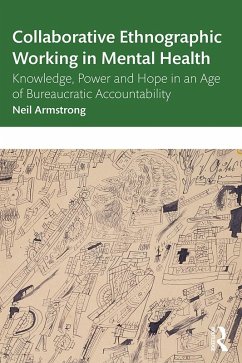People involved in mental health often fail to recognise how they are described by researchers from the humanities and social sciences, which inhibits productive collaboration. This book seeks to address this problem, by including clinicians and patients in the research process and by shifting attention away from power and knowledge and towards the organisational context. It explores how clinical thinking and behaviour, illness experience, and clinical relationships are all shaped by the bureaucratic context. In particular, it examines tensions between what we want from mental healthcare and how accountable bureaucracies actually work, and proposes that mental healthcare research should not just evaluate new interventions but should investigate new ways of organising.
This book is written with a non-specialist audience in mind, as it is intended for all with a stake in mental healthcare research and practice. It is also for those with an interest in ethnographic methods, as a novel way of deploying ethnography, autoethnography and coproduced ethnography to address clinically important research topics.
Dieser Download kann aus rechtlichen Gründen nur mit Rechnungsadresse in A, B, BG, CY, CZ, D, DK, EW, E, FIN, F, GR, HR, H, IRL, I, LT, L, LR, M, NL, PL, P, R, S, SLO, SK ausgeliefert werden.
"Dr Armstrong's incisive analysis of the mental health system challenges complacent and particularised explanations and presents a mature and systemic account of why mental health systems continue to struggle - harm - fail. Sharing his own lived experience of recovery and evolving agency, we see the demise of well-intentioned and highly trained clinicians to serve the structural and bureaucratic agency of the institution, be that the state, the hospital, the prison and criminal justice system. He does this through the powerful stories and voice of the most afflicted, marginalised, and excluded, providing some seminal lessons for practitioners, policy makers, legislators. Although he brings theory into to the analysis, he does so cautiously, never failing to sketch out the limitations of worshipping theory rather than testing it through real world experience and local realities." -- Professor Kamaldeep Bhui, Professor of Psychiatry and Senior Research Fellow, University of Oxford, UK









